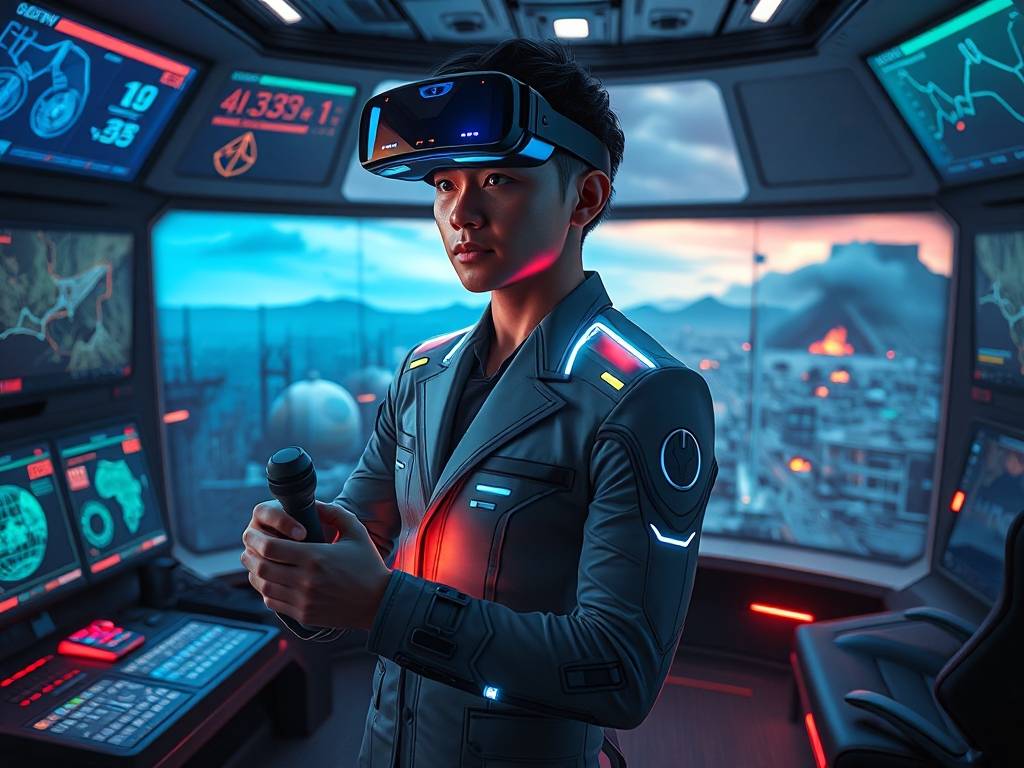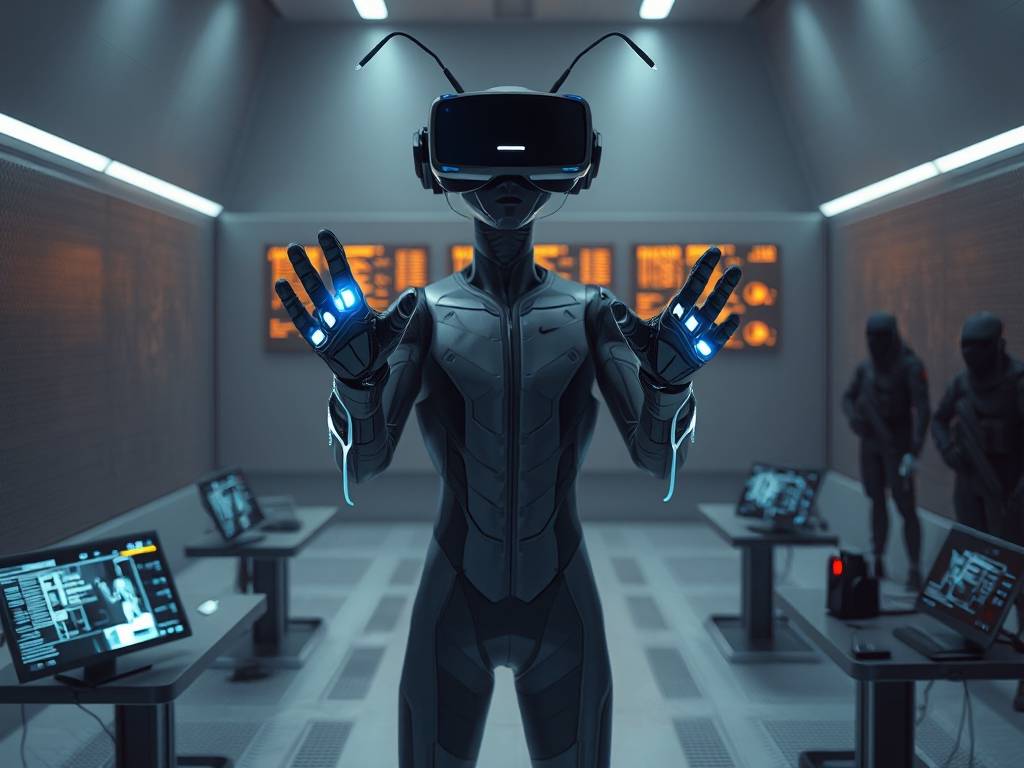The Oppression Engine: How Control Missions Redefine VR's Ethical Frontier
The virtual reality landscape has long been a playground for power fantasies, from wielding lightsabers to commanding starships. "Oppression Simulator VR" dared to subvert this paradigm, casting players not as the hero, but as the architect of systemic control within a meticulously crafted dystopian city-state. Its initial release provoked intense discourse on the nature of power, compliance, and moral ambiguity. Now, its latest expansion, "Control Missions," doesn't just add content; it fundamentally re-engineers the experience, transforming it from a provocative thought experiment into a deeply personal and unsettlingly immersive examination of institutionalized oppression.
The core game established the framework: players manage the city of Veridia through a suite of surveillance tools, propaganda engines, and a faceless peacekeeper force. The goal was simple: maintain order and productivity at any cost. The original experience was largely reactive—quelling dissent, managing resources, and responding to emergent threats. "Control Missions" shifts the dynamic from macro-management to micro-intervention, forcing the player to become an active, hands-on participant in the very mechanisms of control they previously only oversaw.

This expansion introduces a new first-person perspective via a VR terminal within the player’s command center. Here, you don the headset of an elite "Compliance Officer," directly linking into the body cams and cybernetic systems of your peacekeeping units. The chilling transition from a god-like view of the city to the gritty, street-level reality is the expansion's masterstroke. The sterile data points of "civil unrest level: 38%" are replaced with the visceral screams of a crowd, the muffled breathing inside a helmet, and the palpable tension of a standoff.

The missions themselves are varied in objective but unified in their psychological weight. One mission might task you with executing a "Symbolic Detainment"—identifying and publicly apprehending a charismatic community leader to demoralize a burgeoning movement. The game’s advanced AI ensures these characters are not generic NPCs; they plead, they reason, they look you directly in the eye through your agent's camera. Another mission type, "Ideological Purity Screening," requires you to oversee an interrogation, using a bio-scanner to detect stress responses in citizens forced to denounce their beliefs. Success is measured in cold, quantitative metrics: compliance percentage obtained, level of fear instilled, dissident networks exposed.
FirstPersonFear #MoralDilemma
This is where "Control Missions" transcends its own genre. The genius of the design is not in the acts themselves, but in the systems of justification woven around them. The expansion introduces a new narrative layer: "The Director," a soothing, authoritative voice in your ear. He constantly reframes your actions within a grand, patriotic narrative. "A necessary measure for the greater good." "This individual's sacrifice ensures a thousand others thrive in peace." "Your service preserves our way of life." This relentless propaganda, delivered directly to the player, mirrors the techniques used on the citizens of Veridia. You are not just administering the system; you are being conditioned by it. The line between manipulating a population and being manipulated yourself becomes terrifyingly thin.
The emotional core of the expansion lies in its "Branching Morality" system. Unlike traditional games with clear good/evil choices, "Control Missions" operates in shades of grim necessity. Do you follow orders to use "non-lethal" suppression tactics that have a 15% chance of causing permanent neurological damage, ensuring a mission's swift success? Or do you choose a riskier, more protracted negotiation that could fail, leading to a larger outbreak of violence and a demerit on your performance review? The game brilliantly ties your performance to tangible rewards—unlocking better gear, faster intelligence, and praise from The Director. Resistance isn't just morally difficult; it's professionally inconvenient. It makes complicity feel like the path of least resistance, holding a dark mirror to how real-world oppressive systems function.
SystemsOfControl #Propaganda
Furthermore, the expansion cleverly integrates with the base game. The success of your hands-on missions directly impacts the city’s global state. A successfully executed "Symbolic Detainment" might cause a district's productivity to soar while its happiness plummets, creating a new set of reactive problems for you to manage from your strategic view. This creates a devastating feedback loop: your brutal efficiency at the micro-level makes your macro-management role easier, incentivizing further brutality. You become complicit in your own corruption.
"Oppression Simulator VR: Control Missions" is not entertainment in the traditional sense. It is a harrowing, invaluable, and brilliantly designed interactive thesis. It leverages the unique immersive power of VR not to empower the player, but to implicate them. By moving the player from the omniscient chair to the blood-stained street, it forces a confrontation with the human cost of abstract policies. It demonstrates that oppression is not merely a system to be managed, but a series of conscious, human actions—each with a face, a voice, and a consequence. It is one of the most ethically significant and unforgettable experiences in modern gaming, a bold expansion that secures the title’s place as a crucial work of digital socio-political commentary.


















